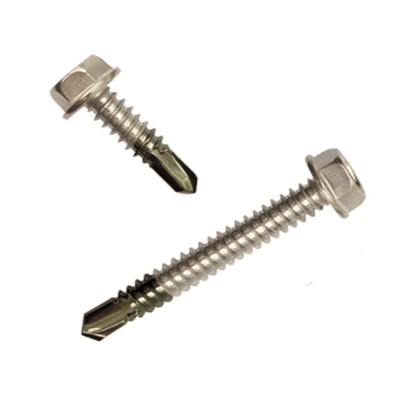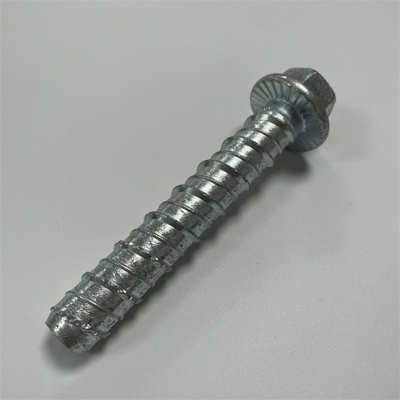caTEGORIES
Tags
Analyzing Thread Patterns to Distinguish Bolts from Screws

Posted: April 17, 2025
Categories: News
Tags: news
When analyzing thread patterns to distinguish bolts from screws, it is important to consider several key factors.
Characteristics of Thread Patterns in Bolts
Thread Pitch and Its Role in Bolt Identification
For bolts, a key property is its pitch (the distance between threads). It is an essential feature for matching the bolt with matching nuts or mating components. Coarse threads (wider spaced) frequently are – where rapid assembly and disassembly are needed or limits disk slip resistance is critical. Conversely, coarse threads have higher tensile strength but fine threads are more suitable for precision applications.
The Importance of Shank Length in Bolts
Increased shank length distributes loads further down the bolt, lowering the concentrated stress on the threads and thus, increasing the overall strength of the bolt. The screws are made from high-tensile steel and are usually treated to protect against corrosion, such as bright zinc plating (BZP). They are designed to withstand large torque applications.
Applications of Bolts Based on Thread Design
The application of a bolt is directly correlating with the thread design. If a bolt has coarse threads, it is more widely used in construction projects as it is easier to use and does not require dirt-free threaded parts. Fine-threaded bolts are best suited for situations, such as cars or planes, where everyone needs to set the torque correctly.
Key Features of Screw Thread Patterns
Differentiating Between Coarse and Fine Threads in Screws
However, screws also have different pitches of thread sorts, unlike bolts, they tighten up nuts and have a different end purpose. Wood or softer materials prefer coarse-thread screws because their greater grip ability does not damage the substrate while being driven in. Fine-thread screws are excellent for metalwork because they generate strong joints with little displacement of material.
Self-Tapping and Machine Screw Threads
These screws also cut their threads as they are driven into materials to install them, meaning that no hole needs to be pre-drilled before a self-tapping screw can successfully go into place. On the other hand, machine screws need pre-threaded holes (or nuts) and are usually used for machine assembly where need for precision.
Self tapping / drilling screws, available through specialized suppliers, demonstrate this dual functionality by combining drilling capabilities with threading features.
Common Uses of Screws with Specific Thread Types
Every thread type is designed for certain applications keeping in mind the material compatibility and the performance characteristics that each application requires. While woodscrews are better at griping wood tightly without breaking it, drywall screws hold well onto plasterboards.
Concrete screws are arguably the strongest option for use in masonry applications as they are threaded to grip into the substrate of concrete without the need for plug-in anchors. Among the various types of traditional screws available for masonry solutions, concrete screws, with their specially designed threads, are a solid entry, as they lock into concrete surfaces without additional plugs, making the tool easy to work with but powerful.

Comparing Bolts and Screws Through Thread Analysis
Structural Differences in Thread Design
Bolts and screws may look similar at first sight, but bolts and screws differ in thread form and usage. Bolts usually exhibit a consistent thread pitch engineered to match corresponding nuts, guaranteeing proper fastening.
The engineering of their threads puts precision in stability and load distribution across the assembly. On the other hand, screws are threaded fasteners that hold on their own and dig into materials like wood, metal or plastic.
Functional Variations in Fastening Mechanisms
Bolts need additional components, typically nuts, to secure a connection. They are essential for applications that require high torque and repeated assembly and disassembly, thanks to this mechanism. These screws are made of a high-tensile steel and bright zinc-plated (BZP) finish for added performance in high-stress environments.
Recommendations for QEWIT Products in Fastening Solutions
Founded in 2004, QEWIT has become a reliable supplier of quality fasteners to clients around the globe. From threaded inserts, bolts and screws to more, QEWIT provides a variety of options combined with quality control with ISO9001 certifications. Their services are customized according to industrial needs while ensuring top-notch customer service.
QEWIT’s High-Precision Bolts for Industrial Applications
High-precision bolts are widely used in industrial fastening requirements. Components associated with bolts such as Metric Hexagon Full Nuts DIN 934 complete it with a solid connection. These nuts come with a brightly zinc-plated finish, enhancing corrosion protection to face even the harshest of conditions.
For heavy-duty applications requiring exceptional tensile strength, consider Hexagon Bolts DIN 931, available in grades 8.8, 10.9, and 12.9 steel. Their part-threaded design optimizes load distribution while minimizing stress concentration on the threads.
Explore more about these high-performance solutions here.
QEWIT’s Advanced Screws for Specialized Use Cases
Specialized screws cater to diverse requirements across industries. Fine-threaded options like Pan Head Recessed Machine Screws DIN 7985 are ideal for precision tasks involving pre-drilled holes or tapped nuts. Their corrosion-resistant finishes ensure longevity in demanding environments.
For projects involving masonry or concrete surfaces, concrete screws stand out due to their unique thread patterns designed to anchor securely without additional plugs. These screws deliver unparalleled reliability in construction scenarios.
Additionally, self-tapping screws provide versatility by eliminating the need for pre-drilling while maintaining strong material engagement during installation.
FAQs
Q1: How are bolts different from screws?
A: Bolts must use an external piece such as a nut to secure them, while screws have their threads embedded into the materials themselves – no additional hardware is needed.
Q2: Why are fine-threaded fasteners better for precision applications?
A: Fine-threaded fasteners have higher tensile strength and improved torque control compared to coarse-threaded fasteners. Therefore, they are commonly used in high-stress applications such as automotive or aerospace.
Q3: Why are self-tapping screws easier to install?
A: Self-tapping screw cut their threads while being driven, thus eliminating the need for a pre-drilled hole, which greatly reduces the assembly time.


